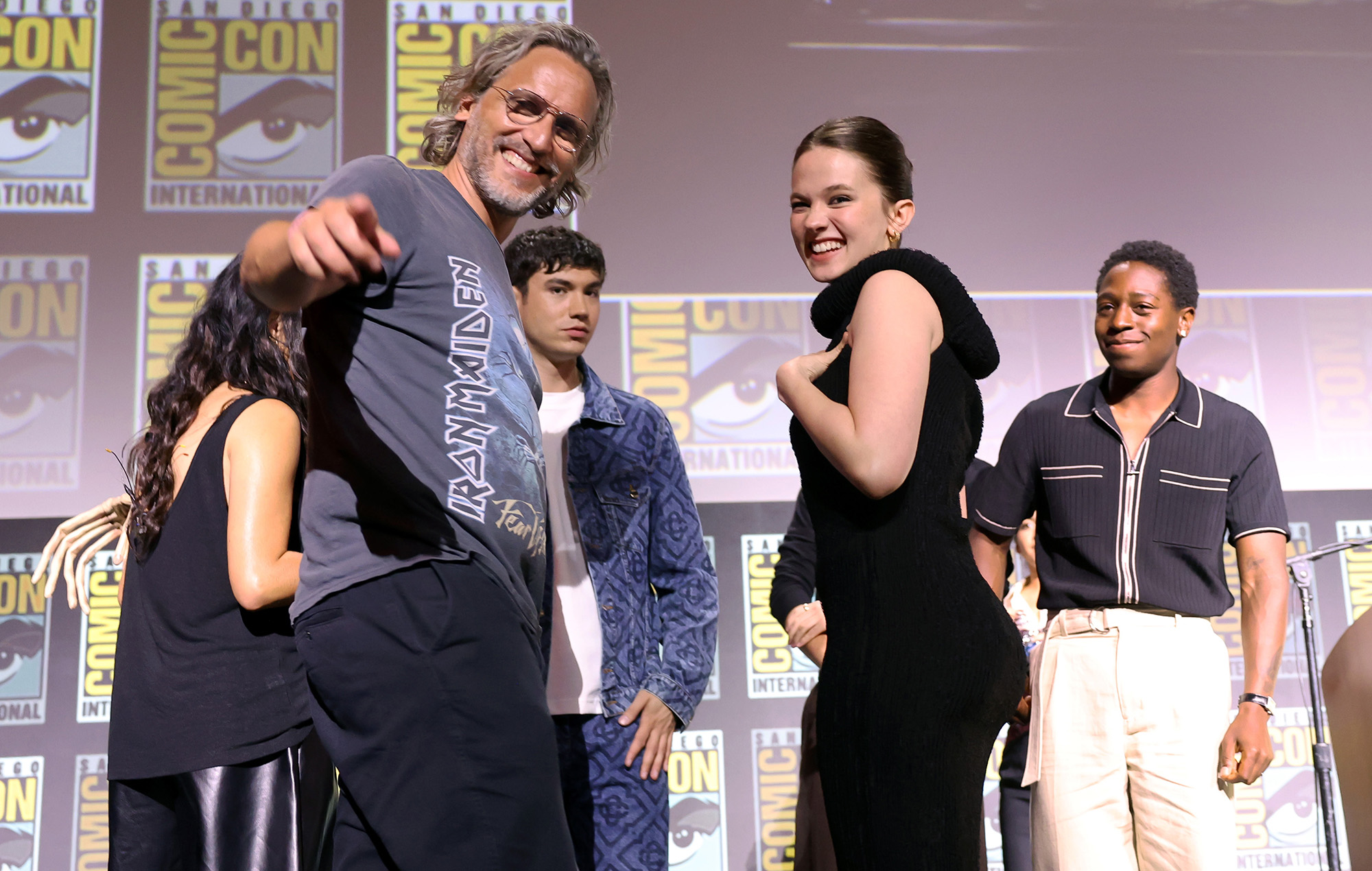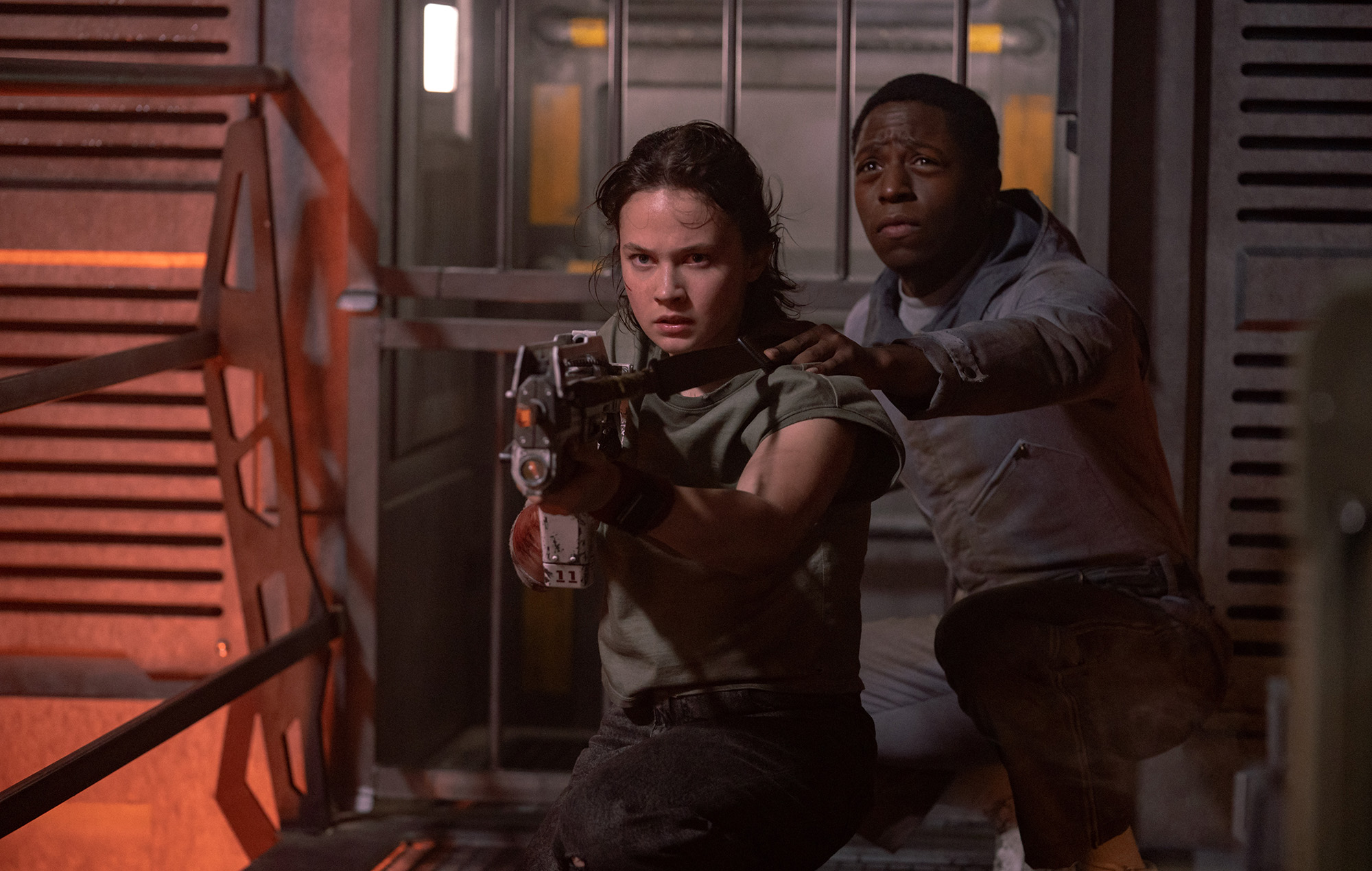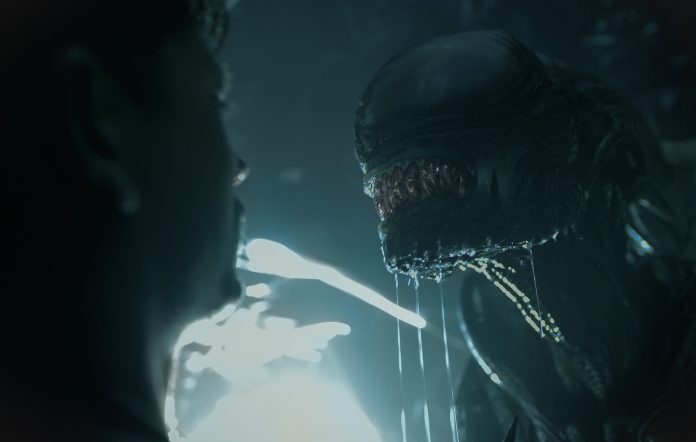Uruguayan filmmaker Fede Álvarez (Don’t Breathe) releases his new Alien sequel, the seventh film in the sci-fi horror series, this Friday (August 16) – and he’s given fans a sneak peek into the process during an exclusive interview with NME.
Set between the violent events of Alien (1979) and Aliens (1986), Alien: Romulus comes from a screenplay by Alvarez and co-writer Rodo Sayagues – but the pair also had help from franchise father Ridley Scott, who directed the original.
After an initial meeting to discuss the “broad strokes” of the story, Scott was “really supportive”, Alvarez said. He also shared a few pearls of wisdom, carefully gleaned from 50 years in the industry.
“He said the director should not be editorial all the time because you lose objectivity with your film,” revealed Alvarez. “If you can stop looking at it for a while and come back to it, you will make it so much better. So I did that during the [Christmas] holidays. I took a month off from the movie and went away and came back… That was great advice he gave me.”
Scott’s contemporary, Martin Scorsese, has also been known to enjoy long breaks during production. “I heard he purposefully takes six months in the middle of the process just to be objective,” added Alvarez, “and then he comes back to finalise it. It’s important because if you lose perspective about what the thing actually is you cannot make a good film.”

Like many of the other titles in the series, Romulus follows the crew of an exploratory spacecraft as they discover a derelict station – and the terrifying, bloodthirsty Xenomorph monster that lurks within it. Alien: Covenant, the previous entry, arrived in 2017 to mostly positive reviews from critics – but underperformed at the box office, grossing $240million worldwide against a production budget of around $100million (not including marketing costs). Alvarez is confident that his reboot offers a fresh enough take on the formula to get fans into cinemas again.
Recommended
“There’s a very deep and meaningful relationship part of the story,” he explained. “There are two surrogate siblings, Rain (Cailee Spaeny) and Andy (David Jonsson). Andy is a Synthetic [android]. He’s been with Rain all her life. He’s like an older brother… Some people around them frown upon that because they’re like: ‘Come on, he’s an android’. But that opens the door to a very unique concept.”
He added: “The android element is always part of Alien, but I can guarantee you it’s never been done like this before…”

To bring his vision to life, Alvarez decided to focus on using physical props and real-world, practical effects instead of digital renderings. Alvarez says this creates a more immersive world for viewers that feels totally real, something he thinks has been somewhat lost in modern day blockbusters.
“The big tentpole movies, they don’t try to be realistic,” he said. “Some do, Dune, I would say probably tried… The Lord Of The Rings did too and that’s why it looks so fucking real. The Hobbit was a bit more digital and lost some of that magic.
“Even the [studios] that do big visual effects maybe don’t have the time, the resources they had before so things get rushed. For us on Alien: Romulus, we kept putting pressure on them to make everything look as realistic as it could.”
Practical filmmaking is actually cheaper than CGI in the long run, Alvarez claimed, but it is usually quicker than producing the same effect with models or bespoke costumes and special make-up. It is also more difficult to pull off.
“Not every director knows how to make it work,” he said. “When you see the guy walking out in the [Xenomorph] suit – there’s just nothing scary about them. So it’s all about knowing how to shoot it and how to make it work. Sometimes a safer route [for the studio] is to figure it out later in post [with digital]. When you shoot a practical [effect], if the shot is not good then that’s it.”
Alien: Romulus arrives in cinemas around the world on August 16. Early reactions from critics have already started to filter through onto the internet – and are largely positive. Variety‘s Jazz Tangcay called it “one of the better films in the franchise” and described the practical effects as “so good that the film gave me nightmares”. If Romulus proves a success with the paying public, could Alvarez be tempted to direct a follow-up?
“I think it’s all about finding a story that is worth telling in that universe,” he said. “I think the thing Hollywood has suffered from is just making them [sequels] because they can, you know. Look at what happened with a lot of the other franchises. There’s too many of them, you lose interest.
“Everybody at the studio [20th Century Studios] loves this franchise and they really take care of it. They’re very precious about it. Ridley is very precious about it. I doubt they would do anything just for the sake of it. So, if we find a great story, I’ll definitely be fascinated to go again.”
‘Alien: Romulus’ is released August 16, only in cinemas
